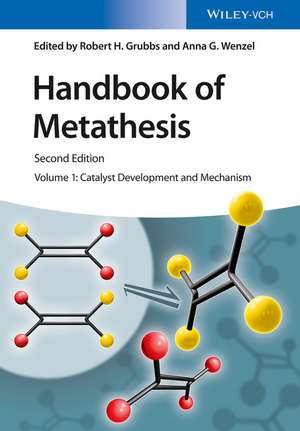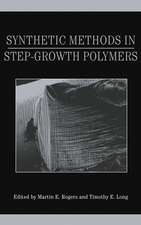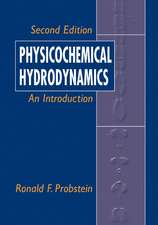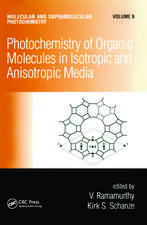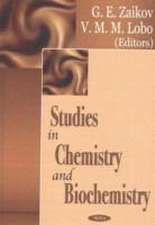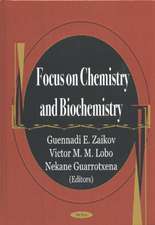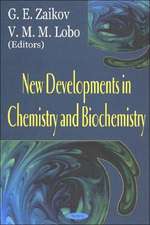Handbook of Metathesis – Catalyst Development and Mechanism 2e
Autor RH Grubbsen Limba Engleză Hardback – 3 feb 2015
Preț: 1267.91 lei
Preț vechi: 1668.30 lei
-24% Nou
Puncte Express: 1902
Preț estimativ în valută:
242.61€ • 253.99$ • 200.75£
242.61€ • 253.99$ • 200.75£
Carte disponibilă
Livrare economică 17-31 martie
Livrare express 28 februarie-06 martie pentru 51.07 lei
Preluare comenzi: 021 569.72.76
Specificații
ISBN-13: 9783527339488
ISBN-10: 3527339485
Pagini: 448
Ilustrații: 500 schwarz-weiße und 25 farbige Abbildungen
Dimensiuni: 177 x 249 x 27 mm
Greutate: 1.11 kg
Ediția:2nd Edition
Editura: Wiley Vch
Locul publicării:Weinheim, Germany
ISBN-10: 3527339485
Pagini: 448
Ilustrații: 500 schwarz-weiße und 25 farbige Abbildungen
Dimensiuni: 177 x 249 x 27 mm
Greutate: 1.11 kg
Ediția:2nd Edition
Editura: Wiley Vch
Locul publicării:Weinheim, Germany
Public țintă
Organic Chemists, Catalytic Chemists, Chemists Working with/on Organometallics, Polymer Chemists, Complex Chemists, Chemists in Industry, Libraries.Notă biografică
Robert H. Grubbs received his Ph.D. from Columbia University for work with Ron Breslow. After a postdoctoral year with Jim Collman at Stanford University, he joined the faculty at Michigan State University. In 1978, he moved to the California Institute of Technology, where he is now the Victor and Elizabeth Atkins Professor of Chemistry. Among many other awards, he received the Nobel Prize in 2005 for his research on the metathesis reaction. His research interests include polymer chemistry, organometallic catalysis, and the development of new synthetic organic methodology.
Anna G. Wenzel received her PhD at Harvard University under the guidance of Prof. E. N. Jacobsen. From 2003 to 2006, she joined the group of Prof. R. H. Grubbs as an NIH Postdoctoral Scholar. In 2006, she joined the faculty as an Assistant Professor at the W. M. Keck Science Department in Claremont, California. In 2012, she was promoted to Associate Professor. Her research topics are asymmetric catalysis, organometallic chemistry, and organic synthesis.
Anna G. Wenzel received her PhD at Harvard University under the guidance of Prof. E. N. Jacobsen. From 2003 to 2006, she joined the group of Prof. R. H. Grubbs as an NIH Postdoctoral Scholar. In 2006, she joined the faculty as an Assistant Professor at the W. M. Keck Science Department in Claremont, California. In 2012, she was promoted to Associate Professor. Her research topics are asymmetric catalysis, organometallic chemistry, and organic synthesis.
Cuprins
Preface HIGH-OXIDATION ON STATE MOLYBDENUM AND TUNGSTEN COMPLEXES RELEVANT TO OLEFIN METATHESIS Introduction New Imido Ligands and Synthetic Approaches Bispyrrolide and Related Complexes Monoalkoxide Pyrrolide (MAP) Complexes Reactions of Alkylidenes with Olefins Olefin and Metallacyclopentane Complexes Tungsten Oxo Complexes Bisaryloxides Other Constructs Conclusions ALKANE METATHESIS Introduction Alkane Metathesis by Single-Catalyst Systems Alkane Metathesis by Tandem, Dual-Catalytic Systems Conclusion DIASTEREOCONTROL IN OLEFIN METATHESIS: THE DEVELOPMENT OF Z-SELECTIVE RUTHENIUM CATAYLSTS Introduction The Challenge of Z-Selective Olefin Metathesis Previous Strategies A Serendipitous Discovery Catalyst Studies Applications of Z-Selective Ru Metathesis Catalysts Conclusion RUTHENIUM OLEFIN METATHESIS CATALYSTS SUPPORTED BY CYCLIC ALKYL AMINOCARBENES (CAACs) Introduction Properties and Preparation of CAAC Ligands CAAC-Supported, Ruthenium Olefin Metathesis Catalysts Summary SUPPORTED CATALYSTS AND NONTRADITIONAL REACTION MEDIA Introduction Supported Catalyst Systems Olefin Metathesis in Nontraditional Media Conclusions INSIGHTS FROM COMPUTATIONAL STUDIES ON d0 METAL-CATALYZED ALKENE AND ALKYNE METATHESIS AND RELATED REACTIONS Introduction Alkene Metathesis Alkyne Metathesis Alkane Metathesis Outlook COMPUTATIONAL STUDIES OF RUTHENIUM-CATALYZED OLEFIN METATHESIS Introduction Computational Investigations of Non-Chelated Ruthenium Catalysts Computational Investigations of Chelated, Z-Selective Ruthenium Catalysts Accuray of the Computational Methods INTERMEDIATES IN OLEFIN METATHESIS Introduction Metathesis-Active, Early-Metal Metallacycles Intermediates in Ruthenium-Catalyzed Olefin Metathesis Future Directions FACTORS AFFECTING INITIATION RATES Introduction Grubbs Second-Generation Catalyst Grubbs-Hoveyda-Type Precatalysts Pyridine Solvates Piers Catalysts Indenylidene Carbene Precatalysts Z-Selective Catalysts Herrmann-Type, BisNHCs Conclusions DEGENERATE METATHESIS Introduction Degenerate Metathesis Mechanisms Degenerate Metathesis with Early Transition-Metal Catalysts Degenerate Metathesis with Ruthenium Catalysts Beneficial Effects of Degenerate Metathesis Conclusions MECHANISMS OF OLEFIN METATHESIS CATALYST DECOMPOSITION AND METHODS OF CATALYST REACTIVATION Introduction Decomposition of Mo and W Imido Alkylidene Catalysts and Related Complexes Decomposition of Ru Alkylidene Catalysts and Related Complexes Conclusions SOLVENT AND ADDITIVE EFFECTS ON OLEFIN METATHESIS General Introduction Solvent Effects on Olefin Metathesis Additive Effects on Olefin Metathesis Summary METATHESIS PRODUCT PURIFICATION Introduction Chromatographic and Chemical Removal of Ruthenium Removal by Complexation Conclusion RUTHENIUM INDENYLIDENE CATALYSTS FOR ALKENE METATHESIS Introduction The Initial Development of Indenylidene Metal Complexes for Alkene Metathesis Binuclear Indenylidene Ruthenium Catalysts Arising from Ruthenium(arene) Complexes Preparation of Ruthenium Indenylidene Catalysts from RuCl2(PPh3)3 Ruthenium Catalysts Bearing a Chelating Indenylidene Ligand Conclusion
